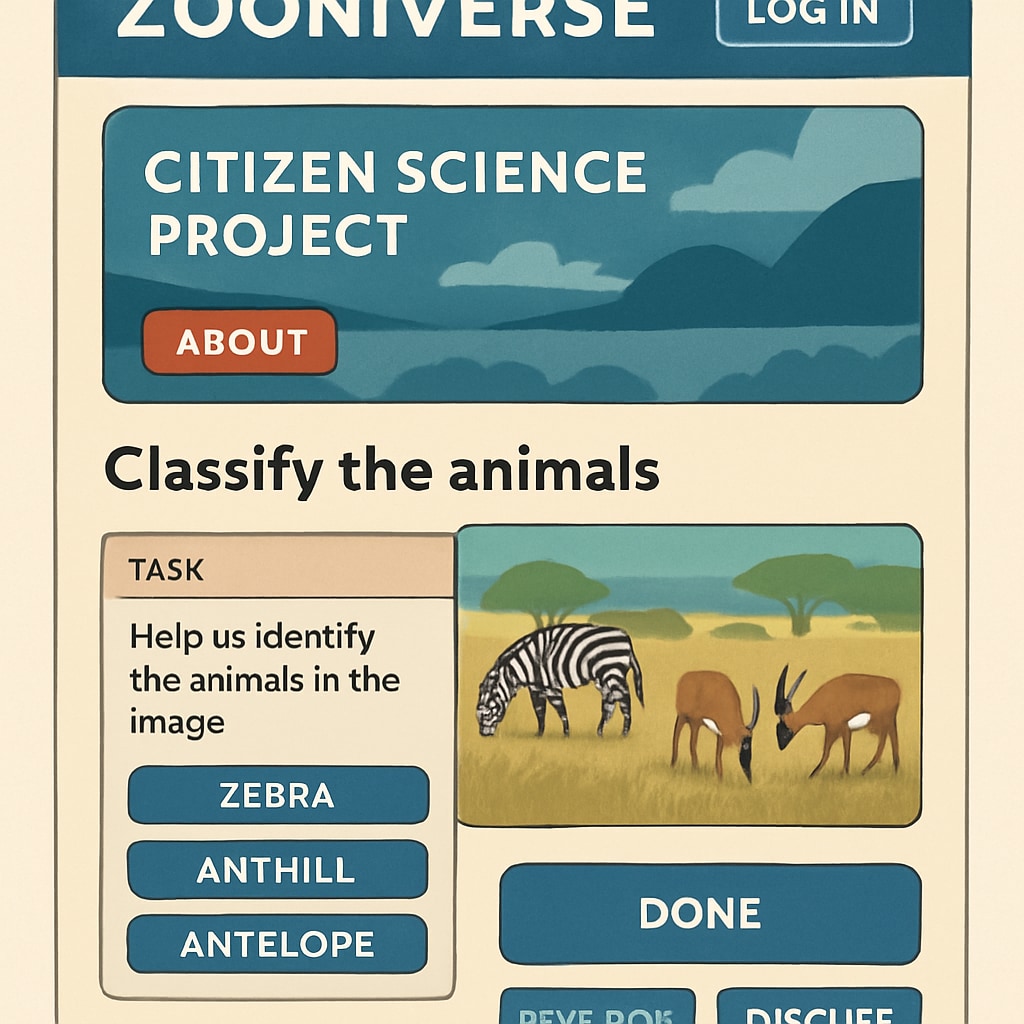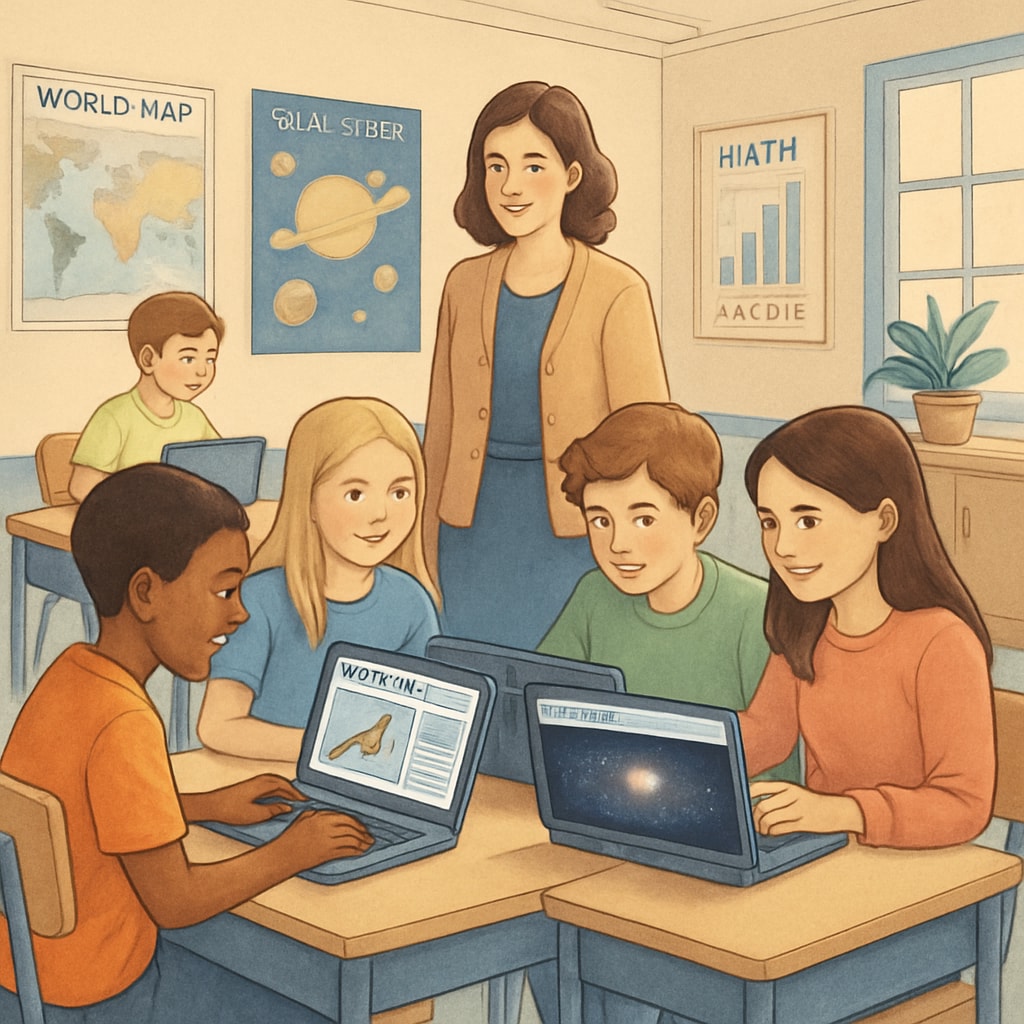In today’s rapidly evolving world, citizen science platforms like Zooniverse are bridging the gap between professional research and public participation. By leveraging Zooniverse, K12 students can actively contribute to real scientific projects, transforming their role from passive learners to engaged contributors. This innovative approach not only enhances scientific literacy but also helps develop critical thinking and social responsibility among young learners.
What is Zooniverse and How Does It Work?
Zooniverse is one of the largest citizen science platforms globally, offering a diverse range of projects spanning astronomy, biology, climate science, and more. The platform allows anyone, including K12 students, to participate in authentic research by analyzing data, identifying patterns, and contributing insights. For example, a student might classify galaxies in the “Galaxy Zoo” project or identify wildlife species in “Snapshot Serengeti.” These tasks often require no prior scientific expertise, making Zooniverse accessible to learners of all levels.
The platform’s intuitive design enables students to easily navigate projects, while its built-in tutorials and community support ensure meaningful participation. Teachers can integrate Zooniverse into their curricula, using it to reinforce classroom concepts while encouraging hands-on learning. By doing so, students not only grasp theoretical knowledge but also learn how science is applied in real-world contexts.

Why Citizen Science Matters for K12 Education
Citizen science provides a unique opportunity for students to engage with scientific concepts directly, fostering curiosity and a deeper understanding of the scientific process. Incorporating platforms like Zooniverse into K12 education offers several key benefits:
- Enhanced Scientific Literacy: Students gain practical experience with data collection and analysis, essential skills in scientific inquiry.
- Critical Thinking Development: Participating in projects requires students to evaluate data, identify trends, and draw conclusions, sharpening their analytical abilities.
- Social Responsibility: Many Zooniverse projects address pressing global issues, such as climate change or wildlife conservation, helping students understand the impact of science on society.
- Real-World Skills: The platform introduces students to collaborative work and problem-solving, preparing them for future academic and professional challenges.
As a result, students not only become adept at scientific reasoning but also develop a sense of responsibility towards the world around them.
Tips for Integrating Zooniverse Into the Classroom
To maximize the benefits of Zooniverse, educators can follow these practical tips:
- Select Age-Appropriate Projects: Choose projects that match your students’ grade level and interests. For younger learners, simpler tasks like identifying animals in photographs are ideal.
- Connect Projects to Curriculum Goals: Align Zooniverse projects with your lesson plans to reinforce key concepts and ensure relevance.
- Encourage Collaboration: Assign students to work in teams, fostering communication and teamwork skills.
- Discuss Real-World Applications: Use Zooniverse projects as a springboard to explore broader scientific themes and their societal implications.
- Reflect and Share: After participating, encourage students to present their findings and reflect on their contributions to science.
By thoughtfully integrating Zooniverse into classroom activities, educators can create a more engaging and impactful learning experience for their students.

The Future of Citizen Science in Education
The rise of citizen science platforms like Zooniverse signals a shift in how science education is delivered. As technology continues to evolve, opportunities for students to engage in real-world scientific research will expand, breaking down barriers between professional scientists and the general public.
In addition to its educational benefits, citizen science promotes inclusivity by allowing individuals from diverse backgrounds to contribute to scientific advancements. For K12 students, this means access to an inspiring, hands-on approach to learning that transcends traditional classroom boundaries. Educators, parents, and policymakers should embrace platforms like Zooniverse to empower the next generation of scientists and problem-solvers.
In conclusion, Zooniverse stands as a testament to the power of collaboration and community in advancing scientific knowledge. By integrating this platform into K12 education, we can inspire young minds, cultivate scientific literacy, and foster a generation of socially responsible individuals ready to tackle the challenges of tomorrow.


